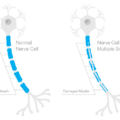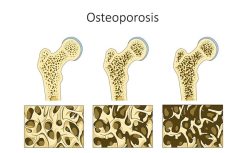The warmest season of the year is around the corner. Many of us are looking forward to school holidays, work vacations, and relaxing. And shopping often accompanies our summer fun. So take advantage of the best bargain of the season: better health – for free! That’s right, I am talking about sunshine: the light emitting from the fiery heart of our solar system. Ultraviolet B (UVB) rays from the sun provide us with an essential nutrient called vitamin D. Yes, this is the vitamin that not only strengthens our bones and muscles but may significantly protect us from a wide range of serious diseases including autoimmune disorders, cancer, contagious illnesses, diabetes, and heart disease, according to a plethora of credible medical studies from around the world.
Many people—across generations and geographical locations—suffer from low vitamin D levels from lifestyles that do not include unprotected sunbathing. Since the late 1980’s, the medical community has emphasized the need to “shun the sun” to avoid skin cancer. Consumers have embraced this advice by spending billions of dollars so they can slather chemical-laden lotions with exponentially increasing sun protection factors all over their bodies. This behavior has resulted in a vitamin D deficiency epidemic.
Moderate sun exposure is healthy for most individuals. Our bodies possess an inherent mechanism to process only the necessary intake of sun rays, about 20,000 international units of vitamin D. After our skin is exposed to direct sunlight under optimal conditions for about 20 minutes, its safety mechanism turns off the initial production of vitamin D. For many folks, it is then time to move to the shade or don additional protection to reduce the risk of sunburn.
Optimal conditions to enjoy summer’s vitamin D depend on a number of factors that we can, and in some cases, cannot control. These factors include:
Geographic location. The closer you are to the equator and the higher your altitude the better your opportunity to acquire vitamin D-rich sunlight.
Time of day. The window of sunlight between 10:00 in the morning and 2:00 in the afternoon is optimal. If your shadow is shorter than your height, you are in the potential vitamin D-producing time frame.
Sky clarity. An azure sky is highly preferable to cloud cover. UVB light is decreased by about 50 percent when penetrating clouds. Ozone pollution absorbs UVB rays before they reach your skin.
Skin. The less clothing, makeup, and sunscreen you wear, the better the odds that your skin can produce vitamin D. It also is important to understand that melanin, the pigment in your skin, absorbs UVB rays. The lighter your skin, the better chance you can make vitamin D more efficiently.
Age. Youth trumps older ages because the concentration of the vitamin D precursor in our skin, called 7-dehydrocholesterol, decreases with age.
Weight. Less weight means typically more vitamin D production from the sun. As vitamin D is fat-soluble, the body’s fat cells more rapidly absorb vitamin D, decreasing its availability to organs, tissues, and cells.
You may be thinking, “I live near sea level, far from the equator, in mostly cloudy conditions with cool summer temperatures; work full-time during the day; and am dark-skinned and overweight. How on earth (literally) can I get any measurable vitamin D from the sun?” Take advantage of sunny weather by enjoying an outdoor lunch break. Remove that hat, roll up your sleeves, and soak in the sun. Ten minutes of sun exposure is better than none.
Each individual’s options for absorbing nature’s gift of vitamin D may differ.* Fortunately, widely available sources of vitamin D including vitamin D3 supplements may be highly effective in raising your body’s D levels to protect you from a wide array of medical conditions. The information about, and benefits of, vitamin D could fill a book. In fact, I am so impressed with vitamin D’s health benefits that I recently published a book called Defend Your Life to encourage people to improve their health by taking vitamin D.
Happy summer, and happy health!
*Persons who have developed sarcoidosis, specific granulomatous diseases, and rare cancers may experience hypersensitivity to sunlight exposure.
Copyright © 2013 by Susan Rex Ryan
All rights reserved.








